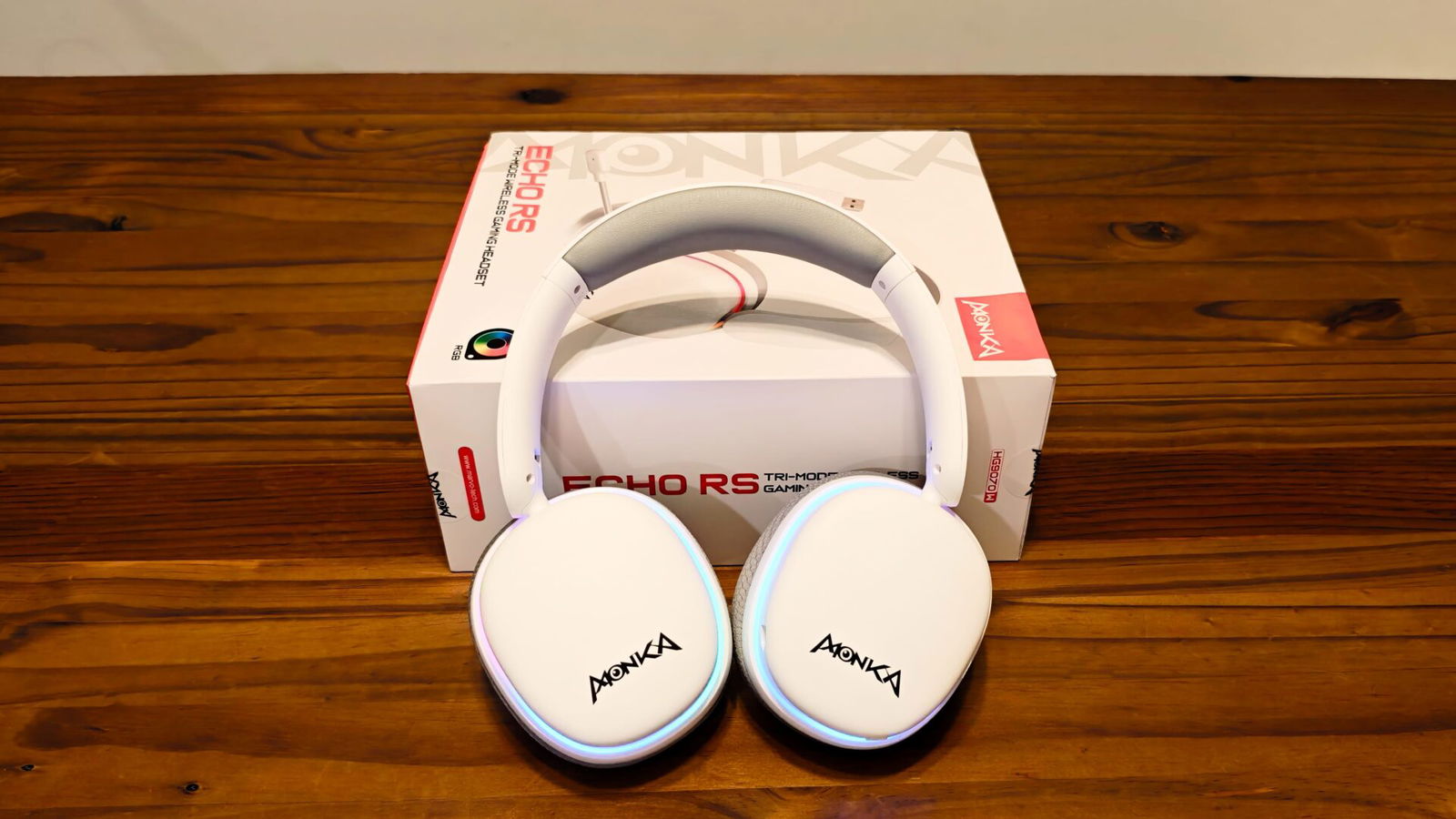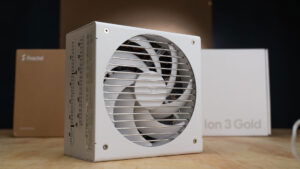The Monka Echo RS Wireless Gaming Headset is a Tri-mode, wireless gaming headset that aims to provide gamers with a budget-friendly alternative for gaming and communication. With 40mm dynamic drivers, a promised 50 hours of battery life, and a foldable design priced at $45.90, the Monka Echo RS Wireless Gaming Headset is looking to corner the market on budget-friendly headsets. Can Monka deliver on its promise? After two weeks of testing, it’s time to find out.
Weighing only 280g, the Monka Echo RS is quite light to wear. The overall design follows most modern conventions with the standard cushioned headband and swivel connections between the band and earcups providing the aforementioned foldable properties. The outer shell is comprised of plastic, though the headband is reinforced by a thin metal strip, providing a bit more durability to the design.
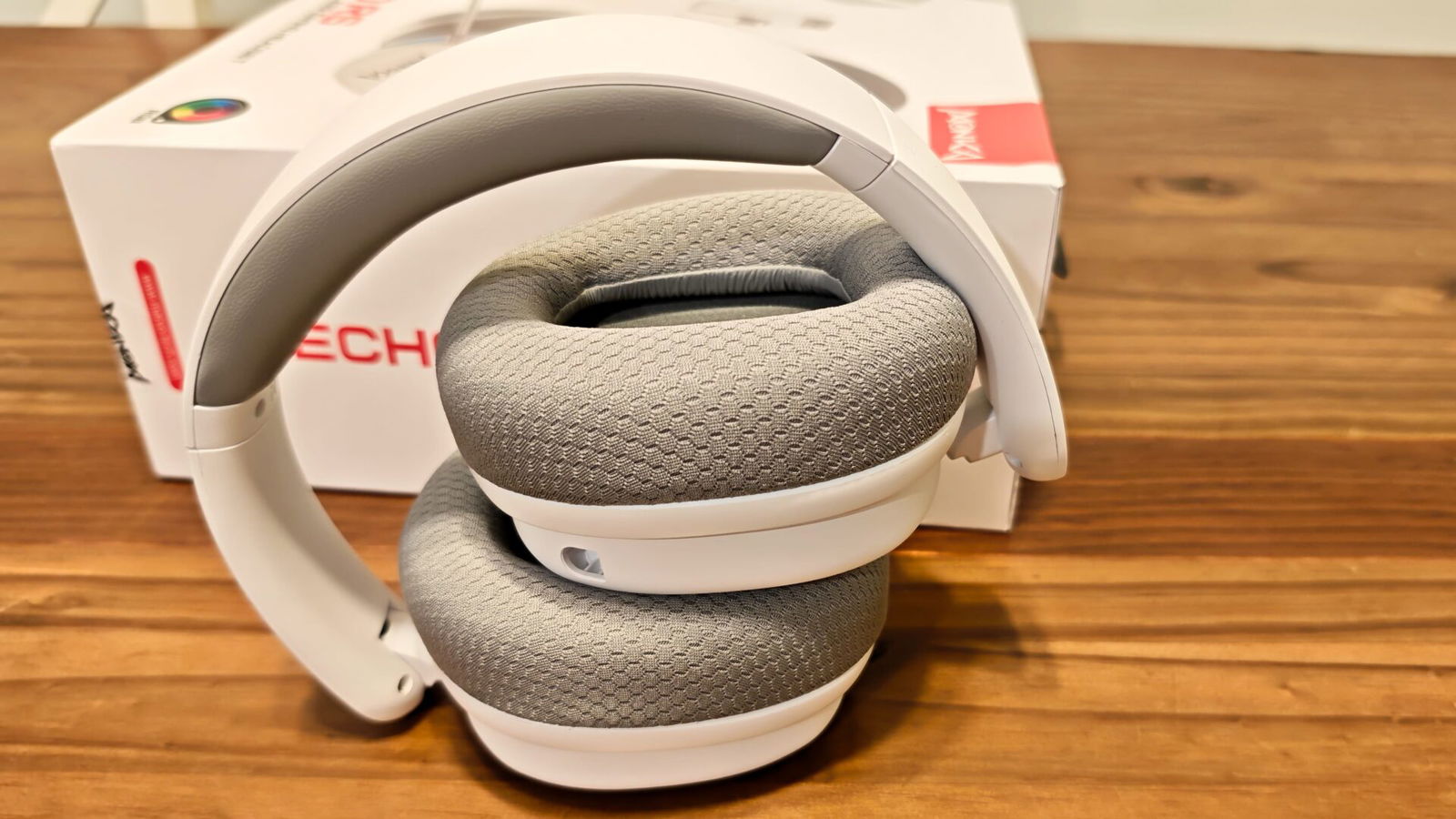
Despite this bolstering of the headband, I do worry about the plastic connections between the earcups and headband. While I’ve not had any issues in the past couple of weeks of testing, experience in testing multiple headphones over the years would suggest that this could be a stress point after prolonged folding and unfolding. Not a major issue at present, but a consideration in general when looking at the prospect of purchasing a new gaming headset.
“Weighing only 280g, the Monka Echo RS is quite light to wear.”
The earcups, though, are quite comfortable to wear. Featuring a plush, breathable fabric, each earcup comfortably encloses the ear and creates a closed-back listening experience. This does help provide a better bass experience (more on this in a moment) and thankfully, due to the breathable fabric, they stay relatively cool even after prolonged use. While the Echo RS were slightly tight the first time I put them on, I’ve found they have since relaxed a bit and do not apply any notable pressure to the sides of my head, even when wearing glasses.
In-line controls adorn the left earcup with the power button, volume, and mic mute all present and accounted for. The former pulls double duty, providing controls for not only power but also media playback pausing, RGB on/off, and mode switching. It’s a fairly straightforward system that works well and is easy to keep track of.
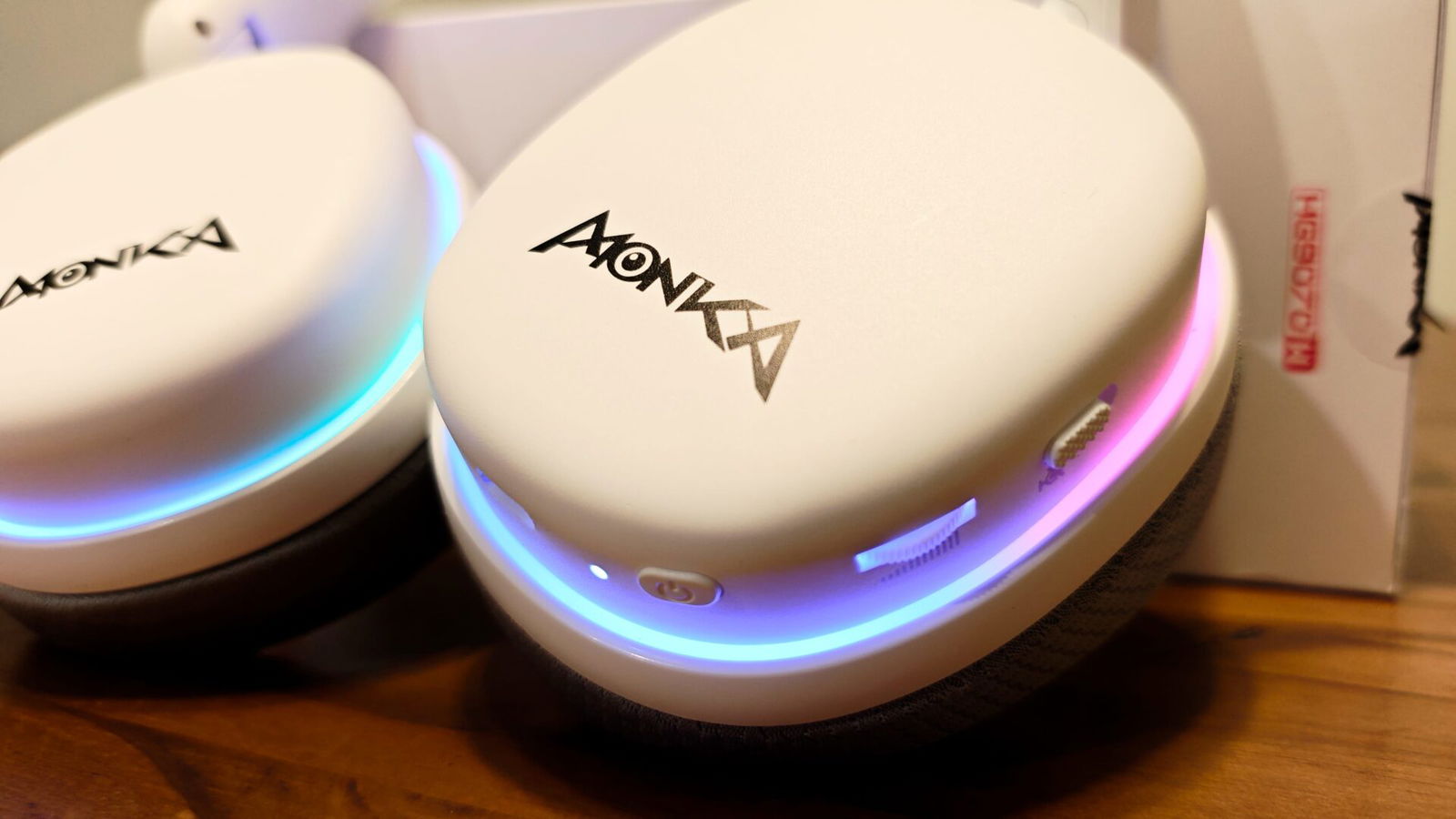
On the note of RGB, while the Echo RS does provide a sharp-looking RGB ring around each earcup, other than on/off controls, there is no way to manage it. It simply cycles the RGB spectrum. Though it does look great, it is limited in customization. As for the microphone, Monka has included a detachable, omnidirectional microphone with the Echo RS. In testing, it performed adequately, providing a clear audio experience, though it is highly compressed. This is to help reduce background noise while still providing clear communication. While it does achieve its goal, the cost is the aforementioned high compression.
The tri-mode design provides great support for a host of platforms as well. Wireless 2.4GHz mode is handled via the included USB-C dongle, which provides support for PC, Mac, and PS5/PS4 systems. Connecting via this method is a plug-and-play experience with each system immediately recognizing the headset. Bluetooth 5.3 mode is also available and switched to via the aforementioned power button. It provides support for most Bluetooth-enabled devices. Finally, an included USB-C to 3.5mm jack is included with the Echo RS, allowing for AUX connection to consoles or a PC. All work well and are easy to set up.
Audio testing of the Echo RS was an interesting affair. When put through frequency testing, there was some notable noise in the lower bands, especially below the 150Hz range. This did cause a little bit of distortion in music and game audio testing, with the low end feeling slightly muddled. While the mid frequencies came back clean, those upper bands suffered from a bit of distortion as well. This translates to some shrill audio at the very high end.
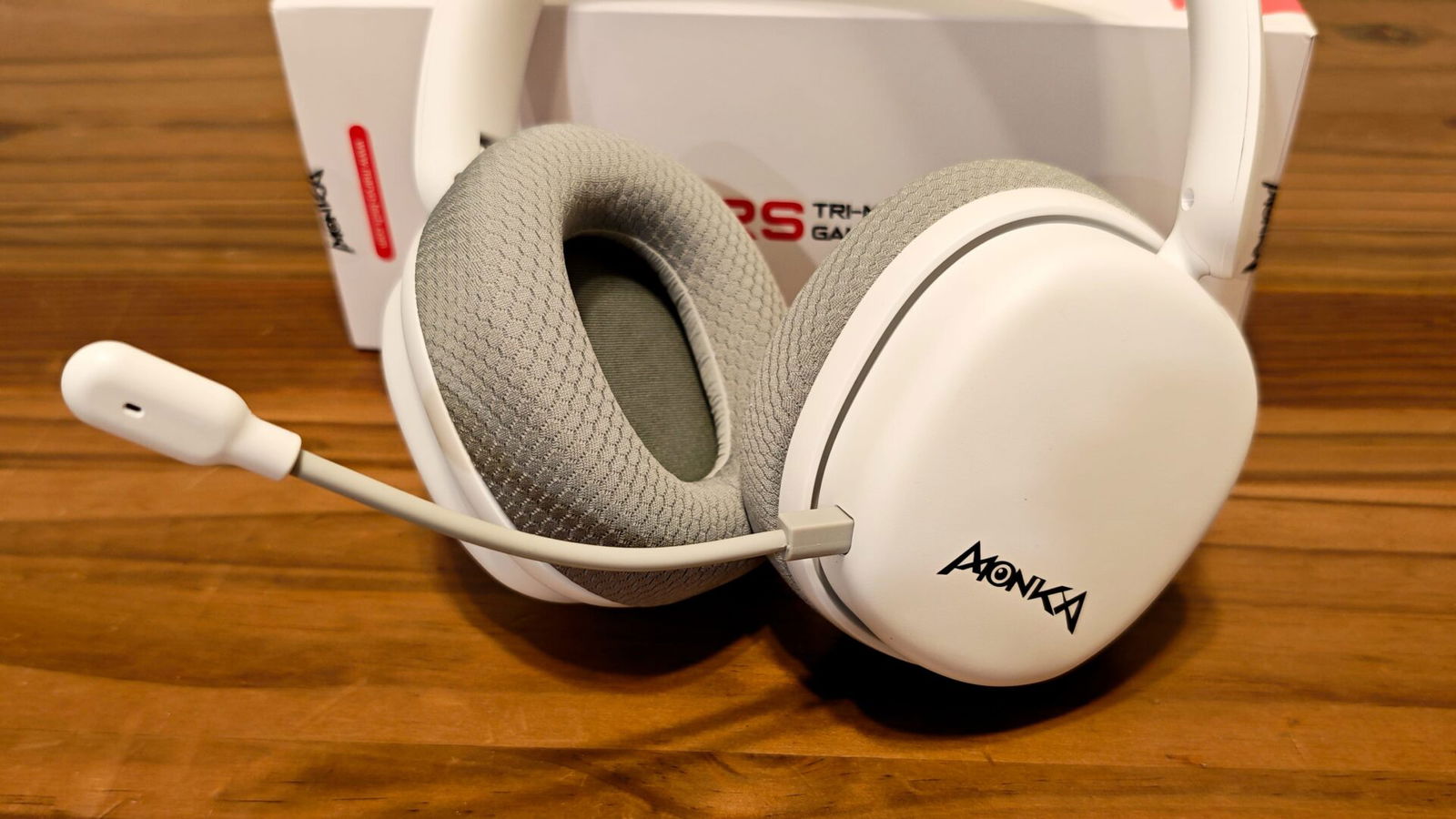
What this means in the overall audio profile is that the mix is first and foremost quite bright. While bass is notable, it tends to be slightly overwhelmed by the higher-end bands. Music, while mostly clear, presents with slightly underpronounced bass, descent mid-range, and notable highs. Games testing provided a similar listening experience. While everything could be heard clearly, I found there was a slightly underwhelming punch in the bass, with the overall mix being brighter than I like for gaming.
“With a 1000mAh battery, the Monka Echo RS has no issue consistently providing a 50-hour listening experience if RGB is off.”
Battery life on the Monka Echo RS is impressive, especially considering its budget-friendly price point. With a 1000mAh battery, the Monka Echo RS has no issue consistently providing a 50-hour listening experience if RGB is off. The one critique I have, though, is that I could not use them while charging. This is a bit frustrating, considering how easy it is to forget to charge your headset between gaming sessions. The 50 hours of use do help ease this frustration, but it still feels like a slight misstep in design.
With that all being said, it’s worth noting that for a sub-$50 wireless gaming headset, the Monka Echo RS provides a solid user experience. The plug-and-play experience is ideal for gamers who do not want to fuss with settings or have to manage software. While the audio experience won’t blow you away, it is consistently solid. Those looking for an economical gaming headset should consider the Monka Echo RS.
